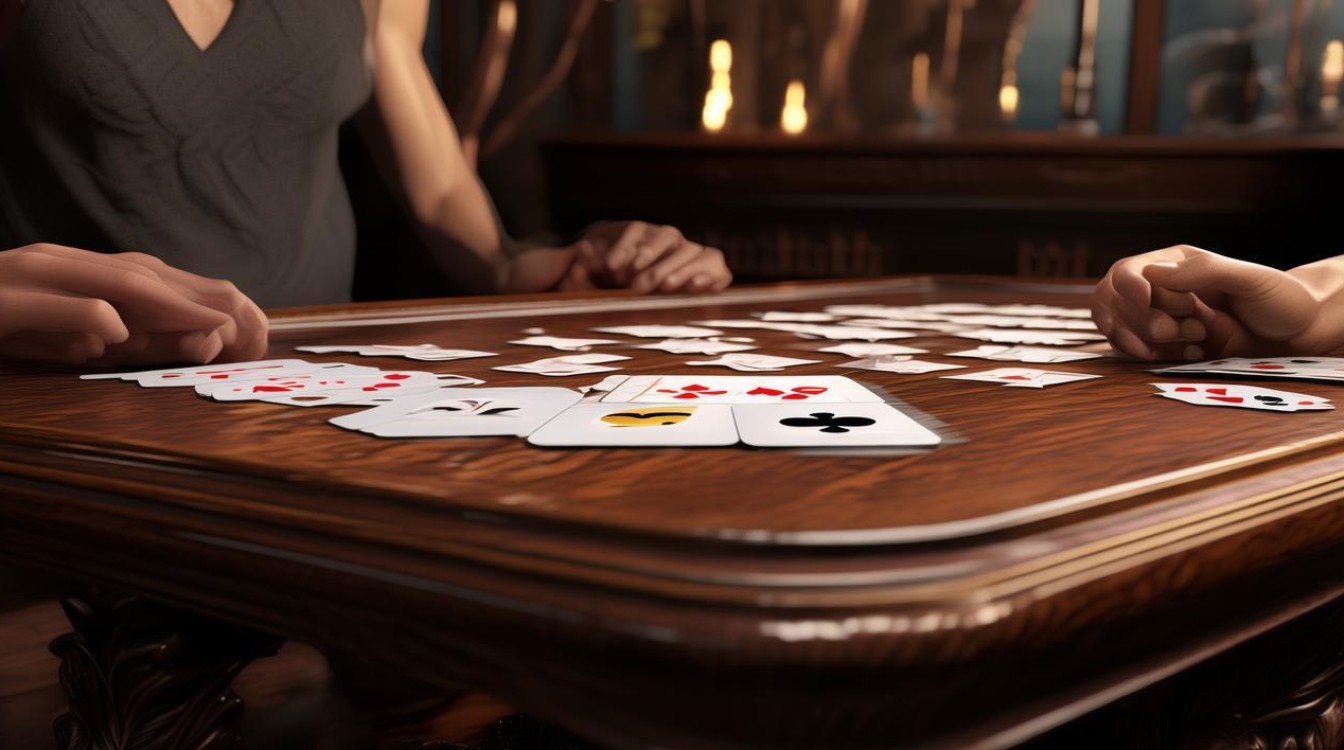在雅思口语考试中,"table game"(桌面游戏)是一个高频且贴近生活的话题,既能考察考生的词汇量与逻辑表达,也能展现个人经历与文化理解,无论是描述童年记忆、社交活动,还是分析游戏背后的逻辑与乐趣,合理运用相关素材都能为口语表现加分。

桌面游戏的多样性与魅力
桌面游戏是人类社交与娱乐的重要载体,种类繁多,涵盖策略、合作、派对、角色扮演等多种类型,常见的经典桌游包括国际象棋(Chess)、围棋(Go)等策略类游戏,考验玩家的逻辑思维与长远规划;而《大富翁》(Monopoly)、《狼人杀》(Werewolf)则更注重互动与心理博弈,适合多人聚会时活跃气氛;近年来,《卡坦岛》(Catan)、《璀璨宝石》(Splendor)等德式桌游因其规则简洁、策略深度平衡,在全球范围内广受欢迎。
不同文化中,桌面游戏也承载着独特的社会功能,中国的麻将(Mahjong)不仅是家庭聚会的纽带,更蕴含着传统文化中的“和”与“变”;西方的桌游咖啡馆(Board Game Café)则成为一种新兴社交场景,陌生人通过共同游戏打破隔阂,建立连接,对于雅思考生而言,掌握这些游戏的基本名称、规则特点及文化背景,能丰富话题表达的细节与深度。
桌面游戏在雅思口语中的应用场景
在雅思口语的Part 1至Part 3中,桌面游戏均可作为素材灵活运用。
Part 1:日常话题
考官可能会问:“Do you like playing table games?” 或 “What table games did you play as a child?” 此时可结合个人经历展开,
- “Yes, I’m a big fan of strategy games. My favorite is 《五子棋》(Gomoku), which I learned from my grandfather. It’s simple to learn but requires quick thinking to outsmart opponents.”
- “As a child, I often played 《飞行棋》(Ludo) with my cousins. It was always exciting to race pieces and hope for a ‘6’ to get another turn!”
Part 2:个人经历描述 要求“Describe a game you enjoy playing”,可重点介绍游戏的规则、参与人员及个人感受。
- “I’d like to talk about 《卡坦岛》(Catan). It’s a board game where players collect resources like wood, brick, and sheep to build roads, settlements, and cities. What I love most is the negotiation aspect—you often need to trade with other players to get the resources you need, which makes the game dynamic and unpredictable. I usually play it with my college friends on weekends, and it’s a great way to relax and bond.”
Part 3:抽象观点讨论
考官可能进一步提问:“Why do you think table games are still popular despite digital games?” 此时可对比传统桌游与电子游戏的差异,强调其社交与互动优势:
- “Unlike digital games, which are often played individually, table games require face-to-face interaction. They help people develop communication skills and build relationships. For example, in 《狼人杀》, players need to analyze others’ words and emotions, which is something screens can’t replace. Additionally, many table games have educational value, like teaching resource management or strategic planning.”
桌面游戏相关词汇与表达
掌握精准词汇能显著提升口语表达的流利度与准确性,以下为常用分类词汇:
| 类别 | 词汇 |
|---|---|
| 游戏类型 | strategy game(策略游戏), cooperative game(合作游戏), party game(派对游戏) |
| 游戏动作 | roll the dice(掷骰子), draw a card(抽牌), negotiate(谈判), outsmart(智胜) |
| 游戏元素 | resources(资源), tokens(棋子), board(棋盘), rules(规则) |
| 个人感受 | engaging(引人入胜的), competitive(有竞争性的), relaxing(放松的) |
相关问答FAQs
Q1: 如何在雅思口语中避免描述桌面游戏时内容重复?
A: 可从多角度切入:1. 区分游戏类型(如策略类vs派对类),突出各自特点;2. 结合不同场景(童年vs现在,家庭聚会vs朋友社交);3. 侧重不同维度(规则设计、社交互动、个人成长),描述《大富翁》时,可先讲“掷骰子移动”的简单规则,再延伸到“谈判与投资策略”的策略层面,最后提及“与家人竞争时的趣味回忆”,形成层次丰富的表达。
Q2: 如果不熟悉某些国外桌游,如何在口语考试中自然回应?
A: 可坦诚表达“不熟悉”,并快速转向熟悉的话题,同时展示学习意愿。“I haven’t actually played 《Catan》 before, but it sounds like a mix of strategy and social interaction, which I enjoy. In my country, a similar game is 《三国杀》(Three Kingdoms Kill), where players use character cards to battle. It also requires teamwork and reading opponents’ moves.” 这种回答既诚实,又展现了灵活的沟通能力。











